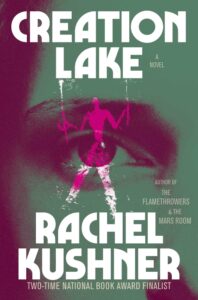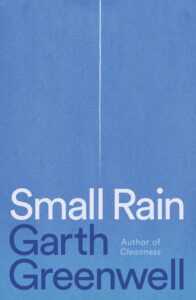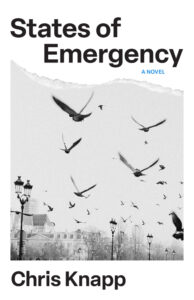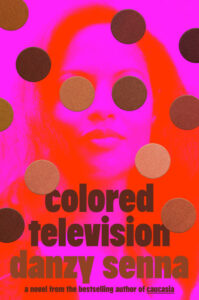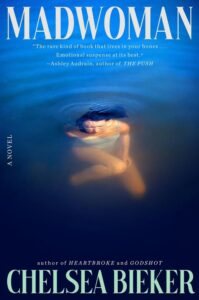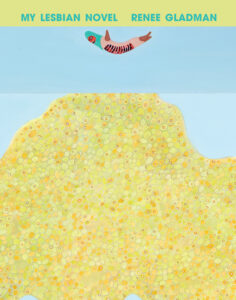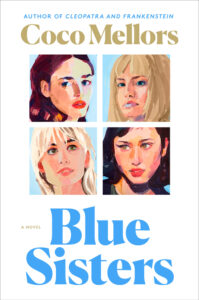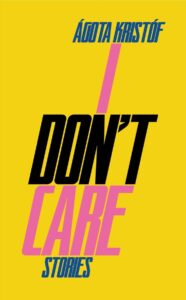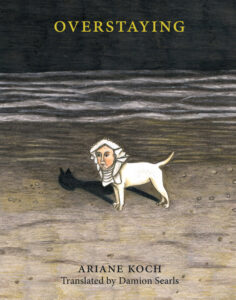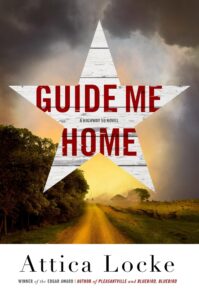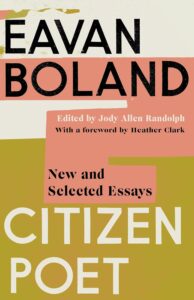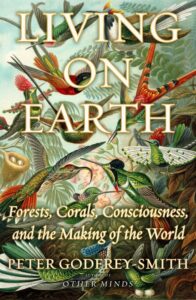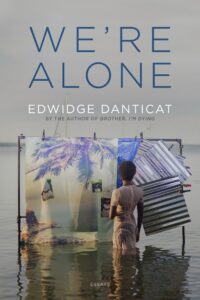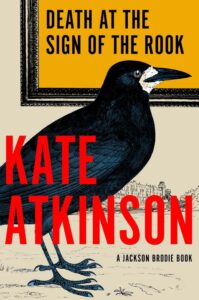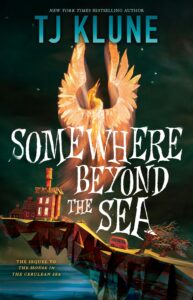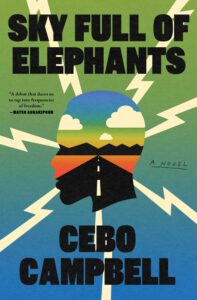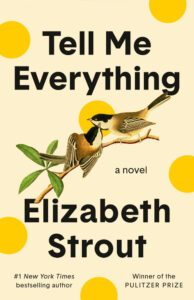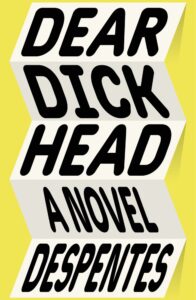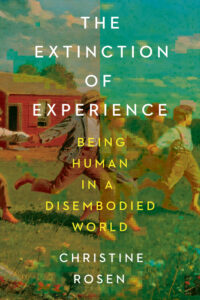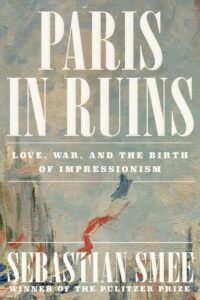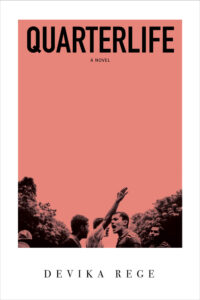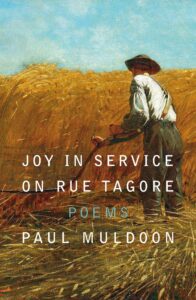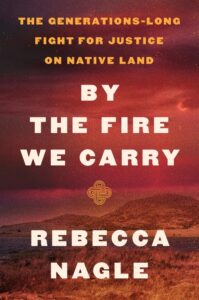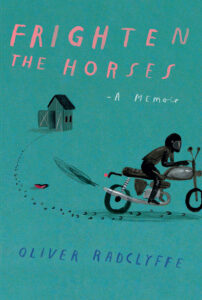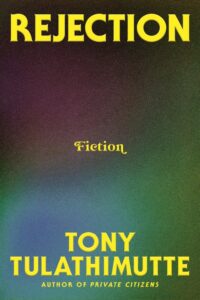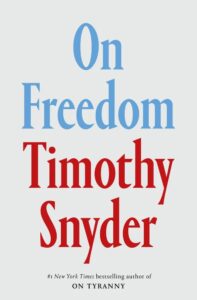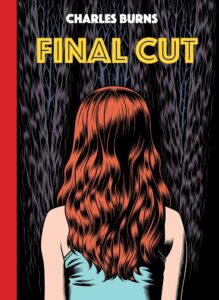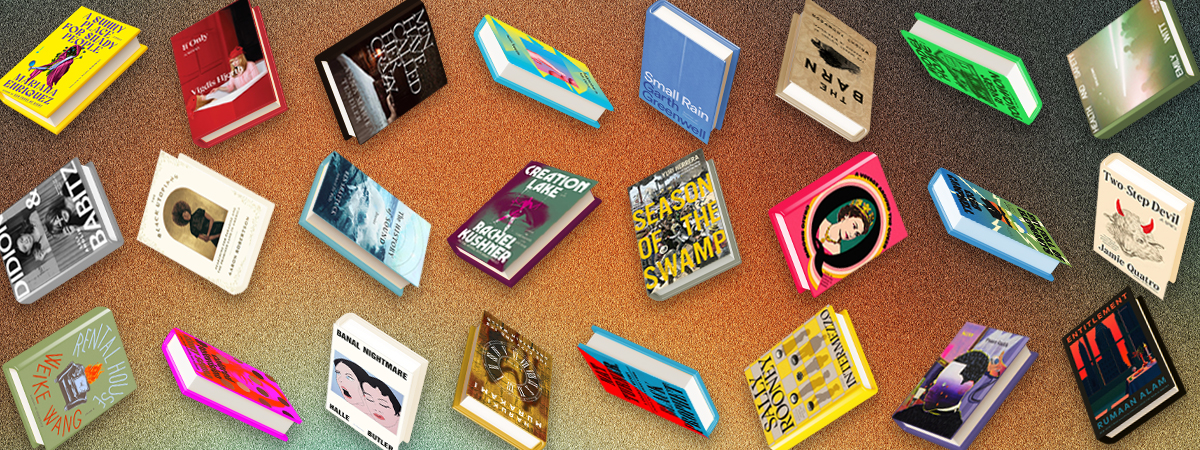
Lit Hub’s Most Anticipated Books of 2024, Part Two
193 Books to Read in the Second Half of the Year
September
Rachel Kushner, Creation Lake
Scribner, September 3
Ahem, Rachel Kushner wrote a secret agent book, and set it in France. What more must we know to anticipate it? Nothing, because no doubt, like nearly everything she writes, it will be an intellectual masterpiece while also reinventing a genre while also being wildly entertaining. That’s kind of her thing. –ET
Garth Greenwell, Small Rain
FSG, September 3
Garth Greenwell is one of our best contemporary prose stylists (due in part, no doubt, to his previous life as a poet), and a new book from him is always a cause for celebration. This novel, in fact, concerns a poet, who suddenly, and with no explanation, finds himself in incredible pain. No doctors can find the source, which makes the book hum with urgency, but of course the real questions Greenwell tackles here are much more metaphysical, though no less urgent—all of the questions of life, love, time, mortality, consciousness made crystalline. –ET
Chris Knapp, States of Emergency
Unnamed Press, September 3
Technically, Knapp’s debut is about a young couple—one French, one American—trying to conceive, but like any attempt to change the world, it’s more complicated than it seems. The novel feels like it shares some Sebaldian DNA—we find stimulating diversions into history at every turn in the road—and does at times achieve a similar effect, except that a lot of the history in question here is ongoing, and mediated by technology: terrorist attacks in Paris, a police standoff in in Charlottesville, the feeling of trying to make a life anywhere against the low hum of contemporary apocalypse. (Though sometimes it’s quite funny, too.) All this, along with the central love story, creates an emotional current that only increases the book’s potency. –ET
Danzy Senna, Colored Television
Riverhead, September 3
As previously recommended: In Danzy Senna’s latest, a novelist and her family are “housesitting” in the fancy L.A. home of an old friend, Brett—who was once a writer, like Jane, but gave it all up to make television about zombies. In his well-appointed office, she finally finishes the book she’s been working on for a decade—a sprawling, enormous manuscript that her husband calls her “mulatto War and Peace“—and sends it off to her agent, only to be . . . let’s say disappointed. On a whim, Jane contacts Brett’s film agent, and winds up running ideas with a big-shot producer who wants to make “the Jackie Robinson of biracial comedies”—but soon, things begin to get weird, and then bad, and then very bad. True to form for Senna, this is a hilarious and also distinctly melancholy novel, witty and profound about class, race, and artmaking. You’ll laugh, you’ll gasp, you’ll cringe, and whisper no no no at the page, and most importantly, you’ll keep reading, even when you could be watching television. –ET
Chelsea Bieker, Madwoman
Little, Brown, September 3
Madwomanis a harrowing psychological thriller about a mother determined to keep her past a mystery to husband and children, only to find herself forced to confront her darkest secrets when a figure from her childhood crawls out of the woodwork and threatens to expose all. Chelsea Bieker’s fierce literary style makes for a perfect match with the thriller form, and her careful plotting leads to a genuinely surprising conclusion. –MO
Renee Gladman, My Lesbian Novel
Dorothy, September 3
I’ll follow Renee Gladman anywhere. Her form-breaking books are otherworldly in their glories and when I found out she was writing a romance novel (well, sort of), I decided I didn’t need to know a single thing more and immediately ordered it. Of course, it is far stranger and trickier than that—but it’s also Renee Gladman tackling the hot genre!! Let’s go!! –DB
Coco Mellors, Blue Sisters
Ballantine, September 3
Cleopatra and Frankenstein was one of those books that lived up to the hype for me and Blue Sisters shot to the top of my fall hype list accordingly. Coco Mellors has a gift at capturing the high drama of the mundane and I can’t wait to see how she tackles a family grief drama. –DB
Vigdis Hjorth, tr. Charlotte Barslund, If Only
Verso, September 3
The Norwegian author of Long Live the Post Horn! and Will and Testament has formed a small but formidable cult following in the US, and If Only should only grow their army. If Only starts off with enigmatic and addictive words of love and death that call to mind our favorite doomed affairs—painful and poetic, cursed and necessary, we must go back in time to understand how our heroine found herself on the brink, caught between passion and ruin. –JH
Agota Kristof, tr. Chris Andrews, I Don’t Care
New Directions, September 3
At least twice a year I recommend Agota Kristof’s dark classic, The Notebook. So please don’t bother me once I get my hands on this, a collection of short (and very short, apparently) stories, which, we are told, are “austere and minimalist, with a poetic force that shifts the walls in the reader’s mind.” Yes please. –JD
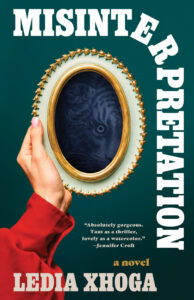
Ledia Xhoga, Misinterpretation
Tin House, September 3
In which an unnamed Albanian interpreter becomes enmeshed in the life of one of her clients, a Kosovar torture survivor, and reality begins to shift and blur. “If in the twenty-first century, Kafka had moved from Prague to Brooklyn, Misinterpretation is the novel I believe he would have written,” writes Tom Grimes. “She captures acorollary world to the one Josef K. inhabits in The Castle, but rather than not being able toreach the castle, Xhoga’s nameless protagonist finds herself living in the castle, a polyglotculture in which everyone misinterprets what everyone else says and does; some residents even misinterpret their own emotions.” Sold. –ET
Ariane Koch, tr. Damion Searls, Overstaying
Dorothy, September 3
Narrated by a “female Bartleby” (I’m listening…) stuck in her childhood home, in a hometown she hates—until a (very) strange visitor becomes her houseguest and obsession. Overstaying is not a plot book, which doesn’t mean you won’t race to the end. Koch is a Swiss playwright and visual artist, and her debut novel is a slim, dreamlike, and bizarre—a in short, a perfect escape from all you’re looking to escape. –JG
Attica Locke, Guide Me Home
Mullholand, September 3
In the final chapter of the Darren Matthews saga, the Texas Ranger is drawn into the investigation of a Black woman’s disappearance, with her white sorority sisters claiming she isn’t missing at all. As with all the installments of this powerful series, history and family legacies and class divisions get all tangled up to produce something distinctly and disturbingly American. Locke has produced a fitting conclusion for one of the era’s defining mystery characters. –DM
Eavan Boland, ed. Jody Allen Randolph, Citizen Poet: New and Selected Essays
W.W. Norton, September 3
With selected essays from two earlier collections paired with later work, including an essay she was working on when she died, Citizen Poet is a great chance to spend time with the mind of one of Ireland’s great poets, Eavan Boland. Aside from breaking through the glass ceiling of Irish poetry, Boland was also an accomplished critic, outspoken activist, and yes, a true citizen. –JD
Laszlo Krasznahorkai, tr. Ottilie Mulzet, Herscht 07769
New Directions, September 3
A new novel from the brilliant and bizarre Krasznahorkai is always worth anticipating; this one comes in the form of a single sentence, in which “gentle giant Florian Herscht” considers “neo-Nazis, particle physics, and Johann Sebastian Bach,” not to mention the end of the world. –ET
Peter Godfrey-Smith, Living on Earth: Forests, Corals, Consciousness, and the Making of the World
FSG, September 3
Eco-philosopher Godfrey-Smith is here to help us reconceptualize our place on Earth. Sure, humans have evolved really big brains (so we can scroll Tik Tok?)—but what about the broader “consciousness” of the planet itself? In examining all manner of life—from gorillas to coral reefs—and how its many parts make a single whole, Godfrey-Smith seeks to catalyze a radical shift in human perspective, before it’s too late. –JD
Edwidge Danticat, We’re Alone: Essays
Graywolf, September 3
Danticat’s luminous, heart-forward prose tends to stick to the ribs. (Krik? Krak! stays an all-time favorite in this house.) So I’m very keen to read her new, highly personal work. This collection of essays gathers odes, childhood reflections, and reported pieces under a big umbrella. In its pages, Danticat illuminates political crises via personal ones, and vice versa. –BA
Kate Atkinson, Death at the Sign of the Rook
Doubleday, September 3
Yorkshire’s best ex-detective is finally back in this hotly-anticipated continuation of Kate Atkinson’s Jackson Brodie series. This time, he’s bored, with nothing but an art theft to work on… but it leads him down a dark and twisty path to Burton Makepeace, a dilapidated former estate that now hosts murder mystery weekends. Delightful! –OR
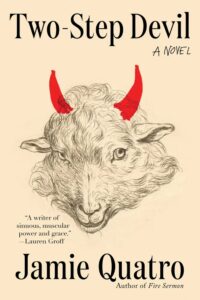
Jamie Quatro, Two-Step Devil
Grove, September 10
At last, a new Jamie Quatro—the latest book from the author of the brilliant collection I Want to Show You More and the Very Sexy (and also brilliant) Fire Sermon, both of which are interested in the divine, and also in the body, and also in extraordinary sentences, is a novel about a seventy-year-old man called the Prophet, who has visions, and a girl named Michael, and, well, the devil (maybe). One way or another, this is sure to be an ecstatic experience. –ET
TJ Klune, Somewhere Beyond the Sea
Tor, September 10
As previously recommended: Klune returns to the world of The House in the Cerulean Sea to follow Arthur, the caretaker of the magical orphanage that so enraptured a legion of readers, as he must return to the mainland and take a stand to defend his found family. Expect tears, laughter, and a feeling of glowing warmth so lovely you’ll never want to leave. –DB
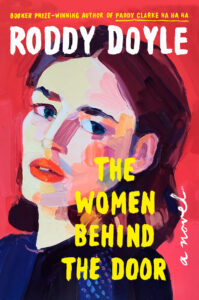
Roddy Doyle, The Women Behind the Door
Viking, September 10
Regular readers of Roddy Doyle, who won the Booker Prize in 1993 for his novel Paddy Clarke Ha Ha Ha, will recognize the heroine of his latest novel—it is Paula Spencer, who first appeared in print (even earlier she lived as a character in Doyle’s TV miniseries Family) as a woman with an abusive husband in 1996’s The Woman Who Walked into Doors; a sequel was published in 2006, picking up a decade after her husband’s death. Now, Paula is sixty-six, and her daughter Nicola—perfect in every way, supposedly—has left her own family, and come to Paula for help, and with a secret. –ET
Cebo Campbell, Sky Full of Elephants
Simon & Schuster, September 10
A year after all the white people in America walked into the nearest body of water and drowned, a Black college professor meets his bi-racial daughter and they set off on a cross-country trip to better understand what happened. I love a good hooky slice of speculative fiction to help me better understand the real world, and it seems like Cebo Campbell’s debut will do just that. –DB
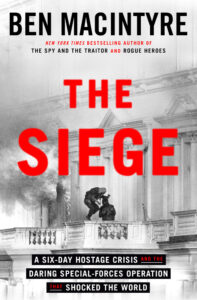
Ben Macintyre, The Siege: A Six-Day Hostage Crisis and the Daring Special-Forces Operation That Shocked the World
Crown, September 10
The latest book from Ben Macintyre—whom the New York Times has called “John le Carré’s nonfiction counterpart”—centers on a hostage crisis within a hostage crisis: the days in 1980 when a group of armed men seized the Iranian embassy in London, taking 26 hostages. Six days later, it would all come to a dramatic conclusion. “Ben Macintyre has established himself as the preeminent historian of the secret world, his work opening doors most of us didn’t know were there,” writes Mick Herron, author of Slow Horses. “His books have set the gold standard for accurate historical reporting, but read like heart-pounding thrillers.” Best of both worlds. –ET
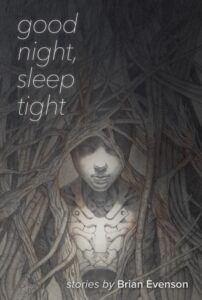
Brian Evenson, Good Night, Sleep Tight
Coffee House, September 10
New Brian Evenson! What more needs saying? The prolific master of the eerie and strange can terrify and delight at any length, but his story collections are always a feast for any reader. If you’ve never read Evenson but are a fan of George Saunders, Ray Bradbury, Jorge Luis Borges… now’s the time to rectify your mistake. –DB
Elizabeth Strout, Tell Me Everything
Random House, September 10
The Strout hive is strong, and no doubt it will be pleased with her latest novel, her fourth in five years, again set in Crosby Maine, home to Olive Kitteridge, Lucy Barton (the two of whom actually meet in this book), Bob Burgess, and all the rest. This is being billed as “a hopeful, healing novel,” which may be exactly what we need this fall. –ET
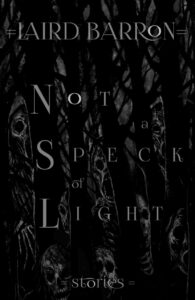
Laird Barron, Not a Speck of Light: Stories
Bad Hand Books, September 10
As previously recommended: For my money, Laird Barron is one of the best horror writers working—his particular grasp of the Weird speaks directly to the dark caves of my soul. His recent turn to noir with the Isiaiah Coleridge novels was a delight, but I’m excited to see him back at work in the form that terrifies me the most: a short story collection. –DB
Virginie Despentes, tr. Frank Wynne, Dear Dickhead
FSG, September 10
In a 2021 New Yorker profile, Emily Witt praised the French author Virginie Despentes’ punk queer feminist aesthetic. Despentes’ Vernon Subutex novels—which are sometimes described in the same breath as Nick Hornby’s High Fidelity—took France by storm in the 2010s. That bestselling trilogy follows an “aging bohemian cohort” as they navigate a brave new digital world. Whether the author is lambasting or relishing in a certain itchy-making Gen-X contrarianism may be up for debate. But the pulse in her prose is undeniable. Ditto the author’s sharp eye for social observation.
In her new novel, Despentes takes on sex, addiction, and rage from a familiar-sounding perch. Dear Dickhead follows Oscar, an embittered novelist, who winds up tangled in an angry Instagram correspondence occasioned by the surfacing of certain…allegations. Words like “provocative,” “excoriating,” and “guns-blazing” pepper the early press. I won’t lie; I’m very intrigued. –BA
Christine Rosen, The Extinction of Experience: Being Human in a Disembodied World
W.W. Norton, September 10
Who are we now that we live most of our lives online? Scarier still, as digital natives begin to outnumber the aging analogs among us, who are we becoming? These questions are central to Christine Rosen’s important new examination of humanity’s transition from the real to the virtual, an urgent interrogation of our increasing reliance on digitally mediated experience. –JD
Sebastian Smee, Paris in Ruins: Love, War, and the Birth of Impressionism
W.W. Norton, September 10
Show me the reader who doesn’t have a soft spot for 19th century European art monsters, and I will show you a liar. In this history, a Pulitzer Prize winning critic describes the rise and fall of the Paris Commune and traces its effect on the art world. I am so all aboard for this close read of a revolution, which aims to examine the intersection of politics and art. Did I mention this book also includes a love story, between movement heavies Manet and Morisot?!
Ideally to be read in a garret, near a roaring fire. –BA
Devika Rege, Quarterlife
Liveright, September 10
Set amid a rising tide of nationalism in Mumbai, Rege’s debut novel follows Naren, a Wall Street consultant who returns to India in pursuit of fortune, along with Amanda, an American who plans to put her ideals into action by teaching in Muslim-majority slum, and Naren’s brother Rohit, a filmmaker who becomes entangled in the world of the Hindu nationalist machine. Hailed by Vauhini Vara as ” a fiercely intelligent engagement with world politics and culture,” Quarterlife promises to be an essential read for this moment in history. –JG
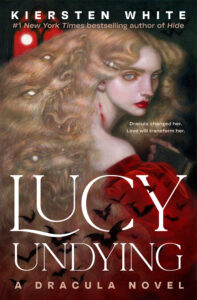
Kiersten White, Lucy Undying
Del Rey, September 10
Justice for Lucy Westenrea! Kiersten White finally gives us a version of the Bram Stoker character we can respect and love, in just one of the many excellent lesbian vampire novels coming out this year (is it hot lesbian vampire summer? Or perhaps, undead lesbian fall?). I loved Mister Magic, White’s strange and beautiful horror novel about childhood trauma and children’s television shows, and Lucy Undying is just as good—although waaay more gory. –MO
Paul Muldoon, Joy in Service on Rue Tagore
FSG, September 10
A new Paul Muldoon collection is always reason to celebrate. With his customary knife-edge balance of formal playfulness and politically charged erudition, Joy in Service sees Muldoon’s far-ranging poetic imagination roaming from the darkest cul-de-sacs of the war in Ukraine to the shipyards of Belfast to the last wild wolf of Ulster; no subject is too large (or too fine) for this poet’s sublime focus. –JD
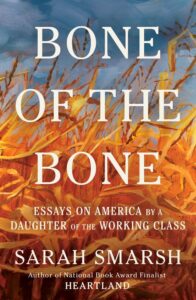
Sarah Smarsh, Bone of the Bone
Scribner, September 10
Kansas journalist and National Book Award finalist Sarah Smarsh (Heartland: A Memoir of Working Hard and Being Broke in the Richest Country on Earth) is one of this country’s essential voices on socioeconomic class, politics, public policy, and the rural-urban divide. Her new book of essays, Bone of the Bone: Essays on America by a Daughter of the Working Class, is a bumper collection of her reportage, cultural commentary, and personal essays, on topics ranging from America’s criminalization of poverty and our misconceptions about the Red Vs. Blue political divide, to working as a Hooters Girl and the socioeconomic implications of having “bad teeth.” –DS
Rebeca Nagle, By the Fire We Carry: The Generations-Long Fight for Justice on Native Land
Harper, September 10
For a “nation of laws” the United States has a very long history of ignoring them when it comes to Indigenous rights. In the name of land, power, and imperial expansion, it’s hard to find American treaties with Native nations that weren’t broken or ignored or abrogated in some unjust way or another. But as Rebecca Nagle’s history of the Muscogee people reveals, every now and then the law comes through: in this case, a 2020 Supreme Court decision (arising from a small town murder in the 90s) that saw the restoration of nearly half of Oklahoma to nations like the Muscogee and Nagle’s own Cherokee. Justice delayed, but justice nonetheless. –JD
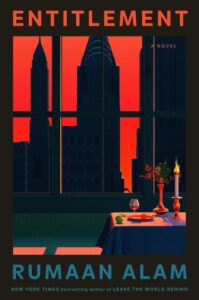
Rumaan Alam, Entitlement
Riverhead, September 17
Alam is quickly emerging as one of the best social novelists working today. Meaning, like Edith Wharton and Henry James before him, he is writing about nothing so much as money, as well as race, and class, and work, and the weirdness of contemporary life, and nowhere so much as in this novel, which is a book about what it means to be walking amidst old white billionaires, meaning it’s a book about what it’s like to be alive today. As engaging as it is unnerving. –ET
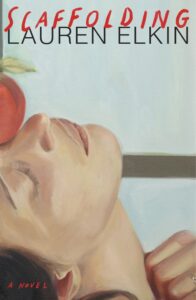
Lauren Elkin, Scaffolding
FSG, September 17
I’ve been a fan of Lauren Elkin’s nonfiction since I read Flâneuse, her book about women walking; I also devoured last year’s Art Monsters. So needless to say I’m very curious and excited to read her first novel, which is being pitched as “a novel of Paris, desire, love, psychoanalysis, and the turbulent affairs of two couples across time.” Yes, please. –ET
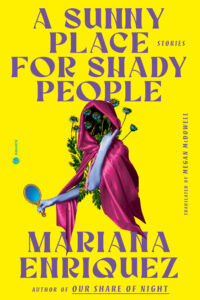
Mariana Enriquez, tr. Megan McDowell, A Sunny Place for Shady People
Hogarth, September 17
Our Share of Night was my favorite novel of 2023 and the Enriquez hype train should only keep rolling with this new collection of stories. Nobody does horror quite like Enriquez, whose stories linger at the edges of your consciousness long after they’ve ended—perhaps because of how she always keeps her focus on the human heart of her tales. –DB
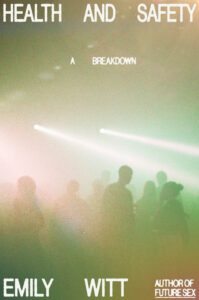
Emily Witt, Health and Safety
Pantheon, September 17
New Yorker staff writer and author of Future Sex Emily Witt is back with a book in which she documents her experiences doing what, in retrospect, we all should have done in 2016: quitting antidepressants, taking up psychedelics, and enmeshing herself in New York City’s underground dance scene. I’m looking forward to finding out what she discovered down there. –ET
Oliver Radclyffe, Frighten the Horses
Grove/Roxane Gay, September 17
I had the pleasure of hearing Oliver Radclyffe read from his monograph Adult Human Male last year and it immediately turned me into a fan for life. His careful, funny, honest writing about his experience of transitioning and finding his authentic self makes for one of the best memoirs of the year. –DB
Paulina Bren, She-Wolves: The Untold History of Women on Wall Street
W.W. Norton, September 17
In this volume, historian and Vassar professor Bren tells the story of the early generations of women who broke into the world of finance, despite the cultural norms, institutional barriers, and—sometimes literal—door signs keeping them out. “Illuminating, exasperating, at times hilarious,” writes Mary Gabriel, “She-Wolves is a must read for anyone hoping to understand where women in the United States have been and how much further they have to go.” –ET
Tony Tulathimutte, Rejection
William Morrow, September 17
If you’ve read “The Feminist,” which was published in n+1 a few years ago, you know that Tulathimutte is incredibly attuned to the awkwardness of modern life, and can spin the most cringy, painful moments into brilliant satire. Rejection is a collection of very smart stories for the very online; in exploring “rejection,” Tulathimutte digs into the most basic of modern fears. But there’s no better advertisement for the book than this essay he published in The Paris Review online earlier this year on “the rejection plot,” craft, fiction, and internet lore. Read it, read everything. –EF
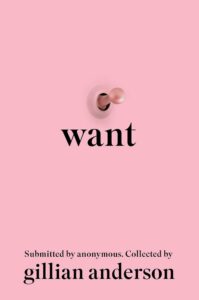
Gillian Anderson, ed., Want: Women’s Fantasies in the Twenty-First Century
Abrams Press, September 17
Playing a sex therapist on Sex Education has made an impact on actress Gillian Anderson: recognizing the need for more frank and open conversation about desire and intimacy, she’s compiled a new collection of anonymous sexual fantasies from women around the globe. Crowdsourcing fantasies from unnamed sources results in this steamy and unvarnished compendium of women’s deepest desires, without the lights on, without any gaze, without judgment or expectation. –JH
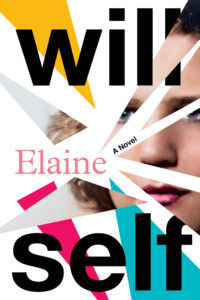
Will Self, Elaine
Grove Press, September 17
Will Self remains one of contemporary literature’s most fearless stylists, consistently outpacing his comfort zone from one novel to the next. With Elaine, Self attempts to unpack the inner life of his mother (using her actual diaries), a prototypical 1950s housewife wrestling with the limitations of her exceedingly proscribed existence. At once formally ambitious and deeply personal, Elaine has been described—in a coinage worthy of Self himself—as “perhaps the first work of auto-oedipal fiction.” – JD
Timothy Snyder, On Freedom
Crown, September 17
Freedom—or “freedom,” in its American context—is surely one of the most weaponized concepts of the 21st century. As historian Timothy Snyder, author of On Tyranny, points out in his new book, we have drifted perilously far from thinking about freedom as the preservation of possibility and instead view it as merely the absence of limits (“freedom from” rather than “freedom to”). This, of course, is bad, insofar as one of the freedoms most cherished by the ascendant American right is the freedom from responsibility: to the planet, to those less fortunate, and to future generations. –JD
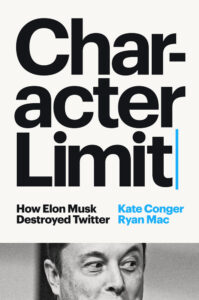
Kate Conger and Ryan Mac, Character Limit: How Elon Musk Destroyed Twitter
Penguin Press, September 17
Forgive me if one of my great (small) pleasures happens to be people dunking on Elon Musk: truly, there is no better avatar of this deeply embarrassing era of late-stage celebrity capitalism. Though there is much to mock, in all facets of his life, Character Limit—by tech journalists Conger and Mac—focuses on Musk’s petulant takeover of Twitter (aka “X,” the totally cool rebrand he came up with). But while it’s fun to openly deride the world’s most aggressively awkward billionaire, Character Limit reminds us how dangerous it is when one man’s hurt feelings nearly lead to the destruction of the digital townsquare. –JD
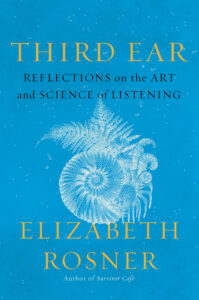
Elizabeth Rosner, Third Ear: Reflections on the Art and Science of Listening
Counterpoint, September 17
To masterfully blend memoir with science writing is to create one of the most compelling kind of book—one whose insights are both cerebral and emotional. And what better topic upon which to turn this skill than listening. Rosner’s hybrid text considers the transformative power of listening, drawing on her personal experience as the child growing up in a household where six languages were spoken, of as well as the expertise of journalists, podcasters, performers, translators, acoustic biologists, spiritual leaders, composers, and educators. –JG
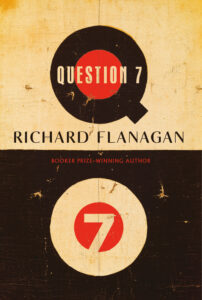
Richard Flanagan, Question 7
Knopf, September 17
I’ve never quite understood why Richard Flanagan isn’t more well known in America. From the vivid, innovative brilliance of novels like Gould’s Book of Fish and The Narrow Road to the Deep North to urgent, deeply moral nonfiction like Notes on Exodus, you’d be hard pressed to find a contemporary writer with greater range (though maybe that answers my question). So I’m particularly excited to get my hands on Question 7, billed as a genre-fluid hybrid memoir, in which Flanagan probes the myths and realities of his own family. –JD
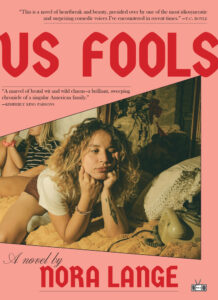
Nora Lange, Us Fools
Two Dollar Radio, September 17
In this “tragicomic, intimate” debut, two sisters, growing up on a farm in Illinois during a recession, trying to keep the realities of debt and disaster at bay by turning inward, or rather toward one another—but of course, in America, this can never work for long. “At turns hallucinatory and ruminative,” says Amelia Gray, “fans of Joy Williams will find a familiar in Lange’s sharp-witted prose.” Good enough for me. –ET
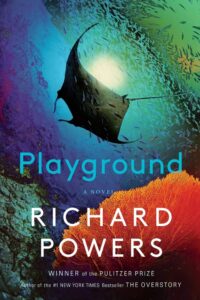
Richard Powers, Playground
W.W. Norton, September 24
In his latest novel, Powers shifts his attention from the trees to the ocean, and to four people whose lives entwine on an island in French Polynesia, where a project is brewing that could change their lives—and also the way humans have lived on the planet since the beginning of time. So, minor stuff then, as usual. –ET
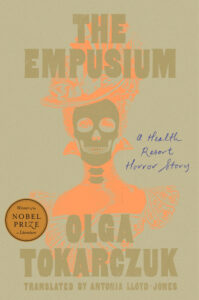
Olga Tokarczuk, tr. Antonia Lloyd-Jones, The Empusium: A Health Resort Horror Story
Riverhead, September 24
Nobelist Tokarczuk’s latest novel is—yes—a horror story set at a spa. Since it’s 1913 Poland, the spa is a health resort called Wilhelm Opitz’s Guesthouse for Gentlemen. That’s enough for me, but if you’d like a little taste of the weirdness in advance, The New Yorker recently published an excerpt you can read right now. –ET
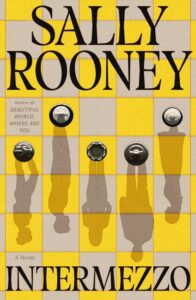
Sally Rooney, Intermezzo
FSG, September 24
It’s Book Girl Summer, and all the bookiest girls are reading their (confidential, numbered) galleys of Intermezzo. But when fall falls, the whole world will be able to get its hands on Rooney’s latest, which concerns the complicated love lives of two brothers in the wake of their father’s death—Peter, a lawyer who has never quite fallen apart like this before, an Ivan, a competitive chess player, who falls for an older woman. But it really doesn’t matter what it’s about, does it? It’s a new Sally Rooney novel, and so literary publishing is saved for another year. The only question is, what kind of merch are we going to get this time around? (Can’t wait to learn to play chess on my Rooney-brand board…) –ET
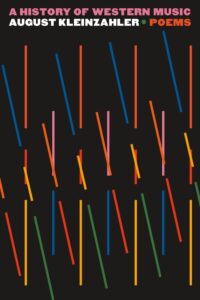
August Kleinzahler, A History of Western Music
FSG, September 24
The legendary poet returns with a new collection that aims to capture, as the title implies, the breadth of Western Music on its pages. Music is such an intimate and indelible part of a life and I can’t wait to see how Kleinzahler blends his love for music across time with his own lyrical style. –DB
Charles Burns, Final Cut
Pantheon, September 24
I can’t count the number of people I’ve bullied into reading Charles Burns’s outstanding 2005 graphic novel (originally a 12-issue series) Black Hole, so obviously, I couldn’t be more excited to dive into Final Cut, his first standalone graphic work since, which is about horror movies and science fiction and filmmaking and—like all of Burns’s best work—the weirdness and terror of being a person in the world. –ET
Pedro Almodovar, tr. Frank Wynne, The Last Dream
HarperVia, September 24
Pedro Almodóvar has made some of my favorite films. His hyper-theatrical melodramas are funny, strange, heartbreaking, sensual, provocative, and beautifully composed. This fall, quite luckily for fans, he’s applying that singular aesthetic to a “fragmented autobiography.” This genre-bending collection (his first published in English) features twelve stories that collapse the space between memoir and fiction, and span the filmmaker’s fifty year career. Fans can expect backstage secrets, elegies, obsessions, and kernels of inspiration from this cabinet of curiosities. –BA
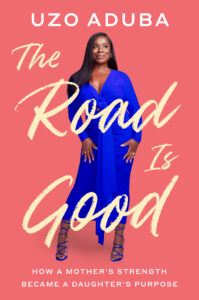
Uzo Aduba, The Road is Good
Viking, September 24
Ever since her scene-stealing turn in Orange is the New Black, I’ve found Uzo Aduba to be one of our most interesting actors. This fall, she’s bringing her characteristic blend of warmth and wildness to a new storytelling medium. In her debut memoir, Aduba recounts a vexy childhood spent in suburban Massachusetts following her family’s immigration from Nigeria. Reflection leads to a fresh appreciation of a complex family legacy. And Aduba also traces, in vulnerable detail, her own long road to self-empowerment.
I’m told we can also expect an “unforgettable matriarch,” from this poignant coming-of-age talea. And, humbling anecdotes from the actress’ early years grinding out auditions in New York. –BA
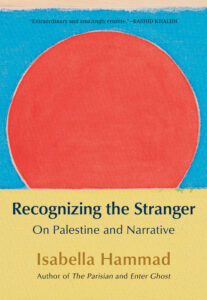
Isabella Hammad, Recognizing the Stranger: On Palestine and Narrative
Black Cat, September 24
Isabella Hammad recently won the Aspen Words Literary Prize and the Encore Award for her magnificent second novel, Enter Ghost—the story of a young British-Palestinian actress who, on a trip to Haifa to visit her sister, is talked into joining a staging of Hamlet in the West Bank. Nine days before October 7, Hammad—who has been fearless in using her platform to advocate for Palestinian rights and denounce the brutality and injustice of the Israeli settler colonial project—delivered the Edward W. Said Memorial Lecture at Columbia University. A powerful, profound, and fascinating speech that blended literary criticism and cultural analysis to illuminate the Palestinian struggle for freedom, it is published here alongside a searing afterword, written in the early weeks of 2024, when Israel’s war on Gaza had already claimed the lives of over 25,000 people. –DS
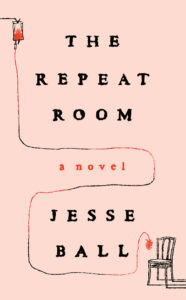
Jesse Ball, The Repeat Room
Catapult, September 24
Ball is one of our most interesting working writers—his novels are always, it seems, trying to do a little bit more than just tell a story. In his latest, which is being pitched as “Franz Kafka meets Yorgos Lanthimos” (insane if true), a “menial worker” called Abel is called for jury duty in a speculative future. In the titular repeat room, Abel is able to experience the life of the defendant more intimately than ever before. Sounds weird and compelling, and—comps aside—very Jesse Ball. –ET
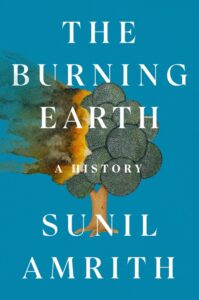
Sunil Amrith, The Burning Earth: A History
W.W. Norton, September 24
As historian Sunil Amrith spells out in his latest grim epic of humanity’s impact on the planet, wherever empire obtains, there follows its dark twins, war and profit. And while this has been the case for millennia, as Amrith shows in The Burning Earth, the 20th century’s two great wars altered the planet at an unprecedented scale, between their unfathomable human toll and their need for almost endless resource extraction. If we do not sunder our unholy reliance on conflict and profit, Amrith seems to warn, we risk the survival of both the planet, and everyone who lives on it. –JD
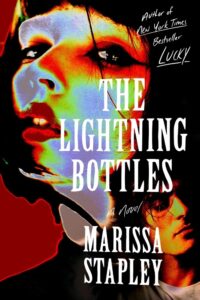
Marissa Stapley, The Lightning Bottles
Simon & Schuster, September 24
With The Lightning Bottles, Marissa Stapley has crafted both a page-turning mystery and a love letter to the grunge era. The set-up is simple and compelling: what if Courtney Love set out on a road trip across Europe with her internet sleuthing neighbor to uncover the real truth behind Kurt’s death? The parallels to Kurt and Courtney aren’t that exact—the novel is actually about a disappeared rock star and his bandmate/lover’s search for him after she finds out he still may be alive. Still, we all know what we’re meant to be listening to while reading it. –MO
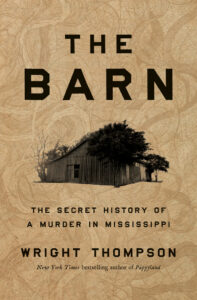
Wright Thompson, The Barn: The Secret History of a Murder in Mississippi
Penguin Press, September 24
It’s been nearly 70 years since Emmett Till, a 14-year-old Black boy from Chicago who was visiting family in Mississippi, was tortured and murdered for allegedly whistling at a white woman. Nonetheless, crucial facts about this historic injustice are still coming to light, many of which are gathered in Wright Thompson’s gripping, thoroughly researched account of the night Till was murdered—in a barn just over 20 miles from Thompson’s family farm—and the cover up that followed (and continues to this day). An important addition to the historical record. –JD
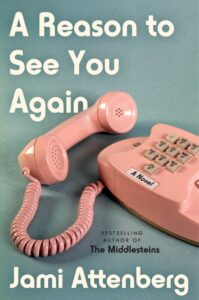
Jami Attenberg, A Reason to See You Again
Ecco, September 24
Most of the time, the thing I want to read most is a sprawling family saga—call it high-brow escapism (though I’ll take escapism at most any brow height). Having previously escaped into Jami Attenberg’s deeply satisfying, very funny fiction, I can’t wait for her latest, which spans 40 years in the lives of the women in the Cohen family after the death of its patriarch. –JG
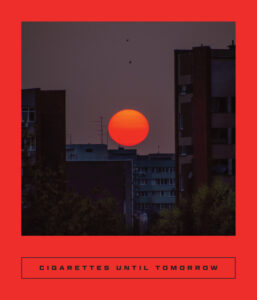
Cigarettes Until Tomorrow: Romanian Poetry
Two Lines, September 24
Two Lines continues their Calico Series with a collection of newly translated Romanian poetry. This series, with its eye-catching design and sparkling curation, is one of the best modes of discovery out there: pick one up, regardless of what you think you know about the contents, and you’re bound to discover a whole new slice of the literary world—like, in this edition, Romanian poetry! –DB
Emily Temple
Emily Temple is the managing editor at Lit Hub. Her first novel, The Lightness, was published by William Morrow/HarperCollins in June 2020. You can buy it here.









